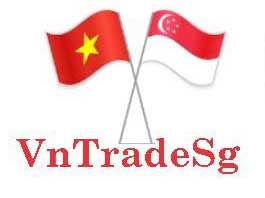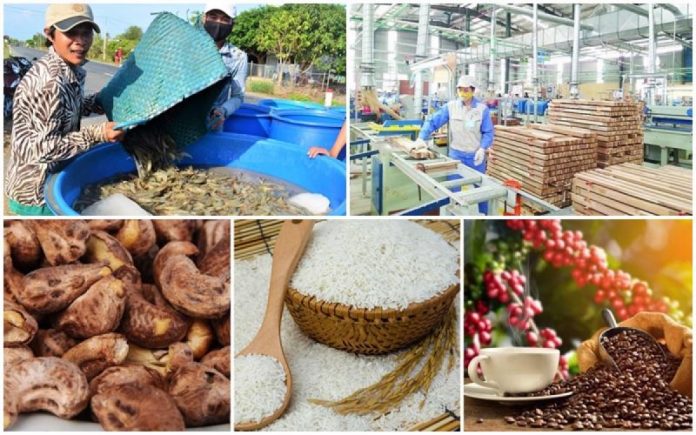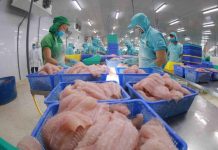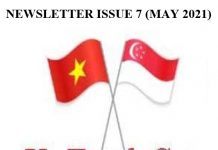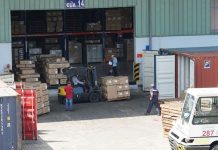The Regional Comprehensive Economic Partnership (RCEP) is opening up an array of opportunities for local enterprises to bolster the export of agricultural products to member countries, according to industry insiders.
The nation ranks among the top 15 exporting countries for agro, forestry and fishery products in the world.
Vietnamese agricultural products have been exported to over 190 countries and territories globally, with export turnover reaching US$48.6 billion in 2021 and forecast to reach in excess of US$55 billion this year.
The first half of the year witnessed agricultural growth reach 2.78% over the same period from last year, while the export of agro-forestry-fishery products hit US$27.88 billion, up 13.9% on-year.
Deputy Minister of Agriculture and Rural Development Phung Duc Tien said that, with the country’s participation in 15 free trade agreements (FTAs) signed with major partners throughout the region and the world, never before have local firms had such opportunities. This can be seen as agricultural enterprises enjoy a large playing field in terms of the number of chances for both trade and investment.
Most notably, the RCEP is an FTA consisting of 10 ASEAN members and five partner countries, including Japan, the Republic of Korea, China, Australia, and New Zealand.
It is the largest FTA in the world featuring a GDP scale of US$26.2 trillion, roughly 30% of global GDP, and a population of 2.3 billion people, approximately 30% of the global population.
The RCEP is also viewed as a market that accounts for 40% of total Vietnamese import and export turnover of agricultural and aquatic products. By becoming involved in the RCEP, agricultural enterprises will have greater opportunities to expand their markets and increase exports, especially in products that the nation has advantages in, such as rice, coffee, pepper, cashew nuts, and seafood, timber and wood products.
According to Phung Duc Tien, more importantly, local agricultural firms have the opportunity to engage more deeply in regional and global supply chains due to stronger commitments in investment and services.
Improving integration capacity for farmers and businesses
Nguyen Quoc Toan, director of the Department of Agricultural Product Processing and Market Development under the Ministry of Agriculture and Rural Development, said that the competitiveness of Vietnamese agricultural products remains weak compared to other member countries.
This is largely because processed agricultural products do not have enough value added content to meet the regulations of the markets.
Furthermore, member countries have intensified technical barriers on food safety, animal and plant quarantine, along with difficulties in terms of negotiating to open markets for agricultural products.
In terms of the domestic market, Vietnamese agricultural products will also have to compete with those from member states imported into the nation.
Regarding fruit and vegetable products, Dang Phuc Nguyen, general secretary of the Vietnam Fruit and Vegetable Association, assessed that, unlike other trade agreements such as the EVFTA, fruit and vegetable products must have quotas or be ratififed under a pre-signed Protocol. This should be done when exported or imported between member countries within the RCEP Agreement.
Providing solutions to promoting agricultural exports from the nation to RCEP markets, Toan underlined the neccesity of improving integration capacity for local farmers and businesses.
In line with this, it can be viewed as necessary to propagate and disseminate information to people and businesses regarding the impact of the RCEP Agreement, as well as the various technical regulations and technical barriers in the trade of agro-forestry-fishery products of RCEP members.
